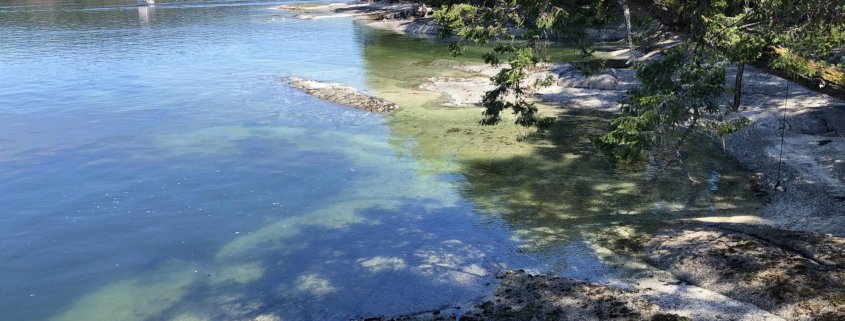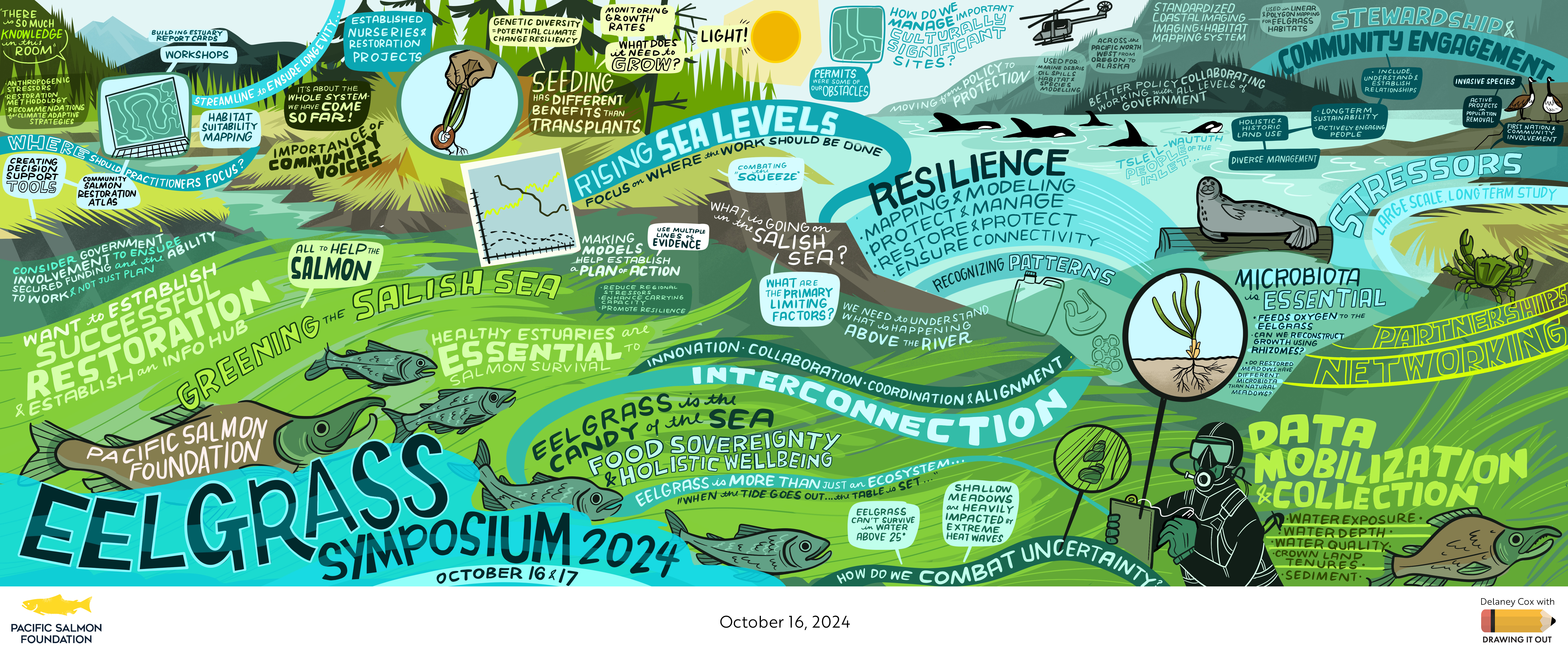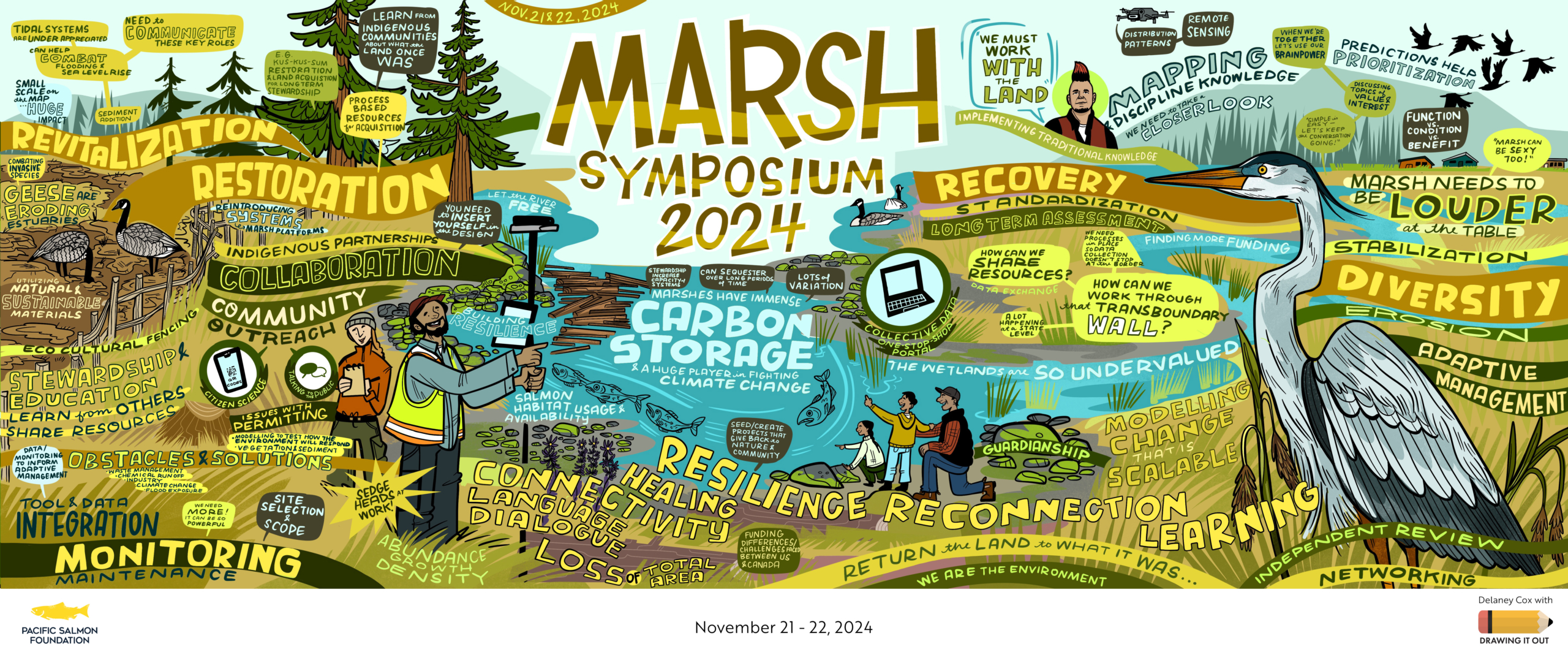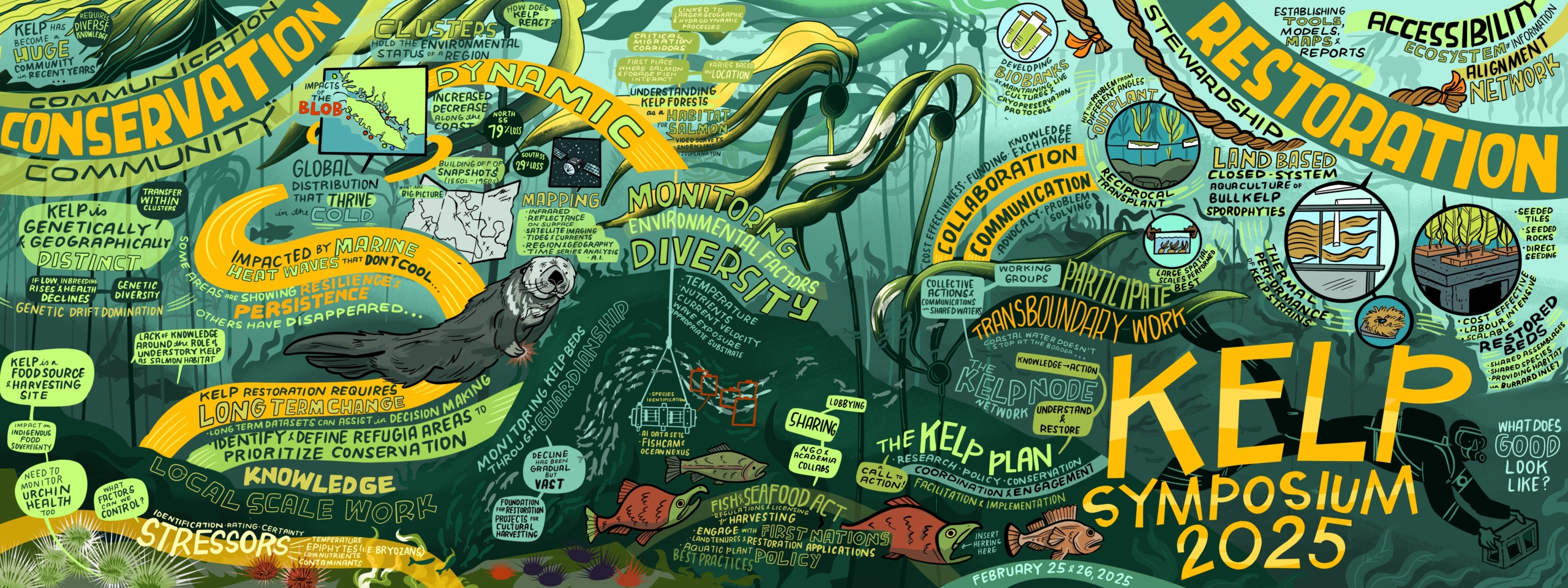
To kick off the information gathering for the State of Knowledge and Practitioners’ Handbook documents, PSF with project partners hosted three Symposia in the fall and winter of 2024 and 2025.
Each symposium focused on a key salmon habitat: Eelgrass, Salt Marsh, and Kelp, and convened between 60-80 experts in the field. Participants were mainly from BC, but some invitees also came from the US Pacific Northwest. The three symposia served as an excellent opportunity to hear different perspectives and network amongst a highly engaged group of academics, practitioners, and government staff. See below for some of the highlights from each symposium.
Eelgrass
Hosted in Campbell River in October 2024, the Eelgrass Symposium brought together First Nations, researchers, consultants, government representatives, and community groups to advance eelgrass conservation in the Salish Sea and along Vancouver Island’s West Coast. The event began with a field trip to Baikie Island Nature Reserve, where Jordon Labbe of the Wei Wai Km Guardians and Katherine Lavoie of Greenways Land Trust led discussions on restoring eelgrass, saltmarsh, and riparian habitats at a former industrial site.
The Symposium was led by Nikki Wright, former executive director of SeaChange Marine Conservation Society and long-time eelgrass restoration practitioner and enthusiast. The two following days featured talks and breakout sessions focused on eelgrass habitat research, restoration actions, knowledge gaps, and future opportunities. Participants expressed interest in ongoing collaborations, including a potential Transboundary network for eelgrass protection.
Products from the Eelgrass Symposium:
- Eelgrass Symposium Report
- Recorded talks (video playlist)
- Graphic recording:

Salt Marsh
The Salt Marsh Symposium convened in Victoria in November 2024 on the cusp of a ‘Bomb Cyclone’ weather phenomenon. Despite cancelled and delayed ferries, the Symposium was well attended by many dedicated marsh experts. The event began with a reception mixer and poster session as well as a welcoming by a representative of the local First Nation Songhees, whose territory we were gathered on, and cultural drumming and singing by Tsawout and Tsartlip youth.
Led by Tim Clermont, executive director of Guardians of our Salish Estuaries, the two full days that followed were busy with talks and group discussions. Sessions included a close look at case studies of marsh restoration in BC and Washington State, factors to consider for restoration, and the challenges climate change will pose. A panel discussion on the lessons to be learned from across the border was a highlight as was a talk on Indigenous Food Systems in Wetlands.
Products from the Salt Marsh Symposium:
- Salt Marsh Symposium Report
- Recorded talks (video playlist)
- Graphic recording:

Kelp
Our third, final, and largest Symposium was held in Victoria in February 2025. The focus this time was on kelp. Similar to the salt marsh event a few months earlier, the symposium kicked off with an evening reception. Kelp experts were welcomed to the territory we were gathered on by a representative of the Songhees First Nation and treated to inspiring cultural drumming and singing by Tsawout and Tsartlip youth.
The two days of talks and discussions were led by PSF kelp biologist Dr. Liam Coleman and covered themes of habitat extent, stressors, and the latest restoration techniques being trialed. UVic Professor Maycira Costa set the stage with a plenary talk on the broad-scale temporal changes of canopy-forming kelp in BC. Restoring kelp in a time of warming waters poses real challenges, however, passionate researchers and practitioners are determined to innovate and find solutions.
Products from the Kelp Symposium:
- Kelp Symposium Report
- Recorded talks (video playlist)
- Graphic recording:

The graphic recordings captured themes of each symposium in real time and were created by Delaney Cox of Drawing it Out.
